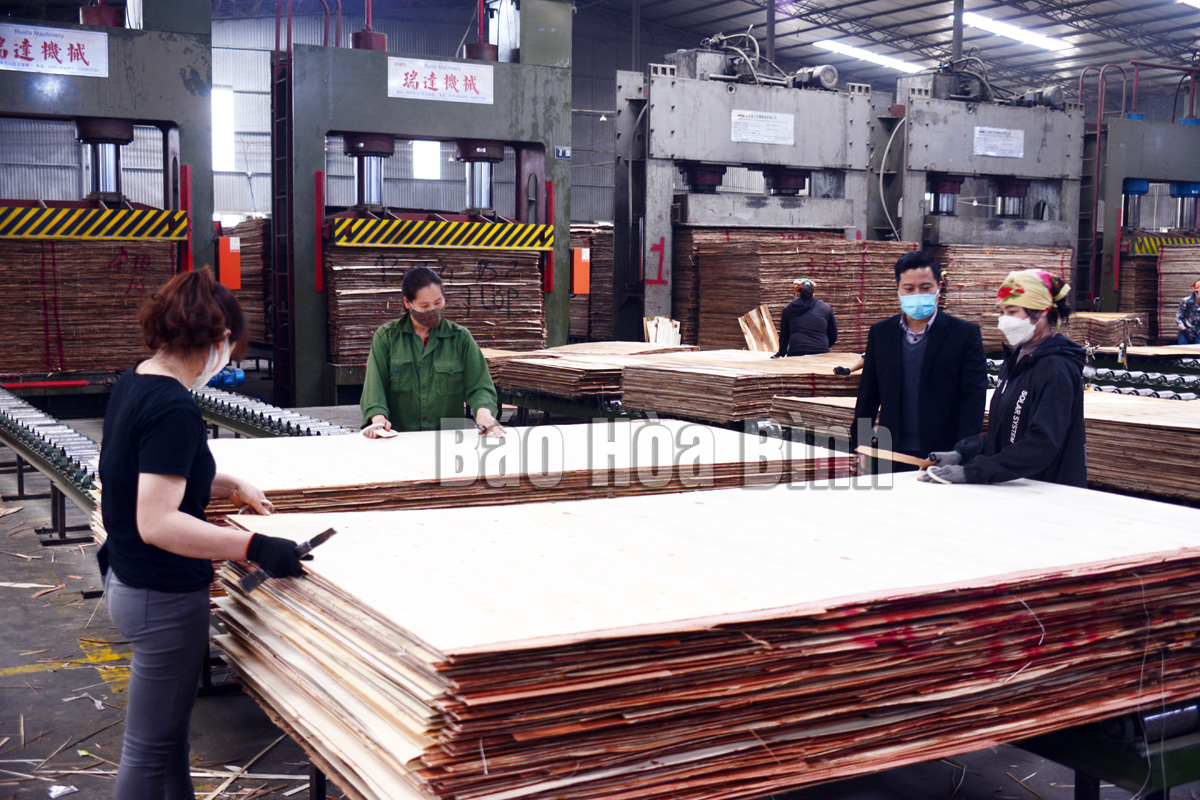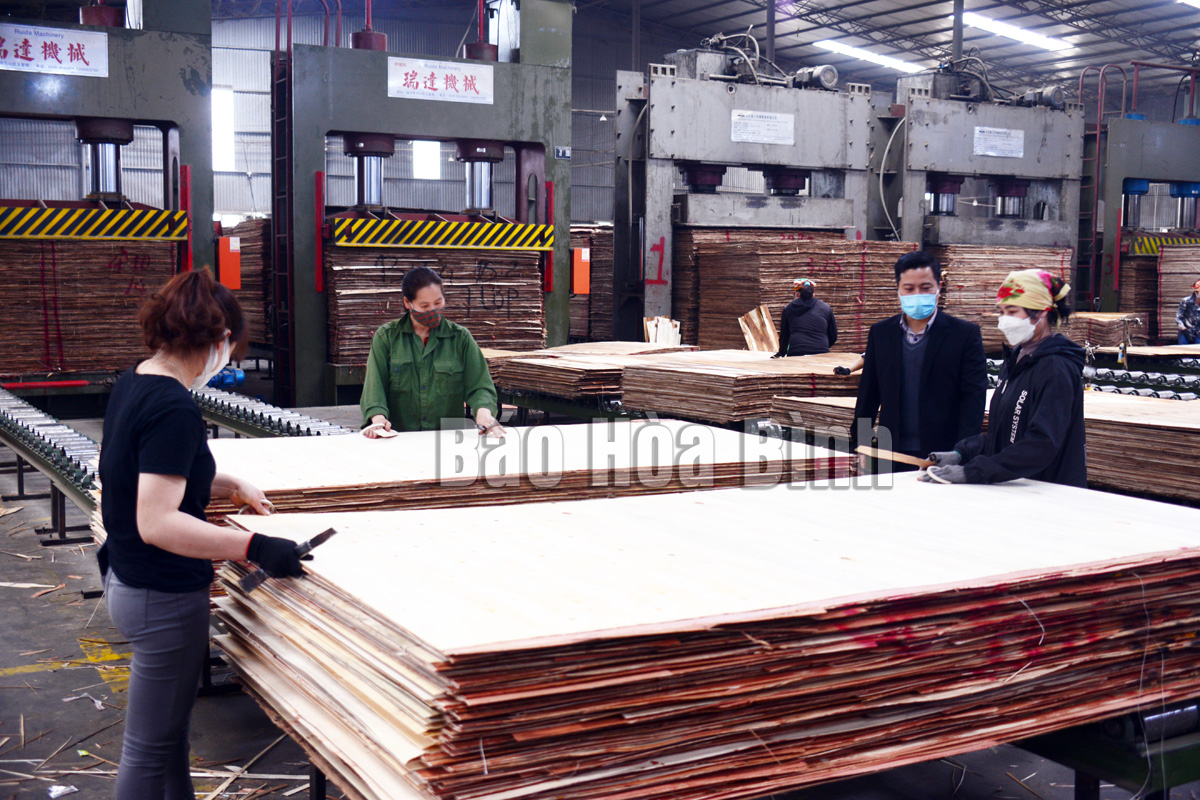
(HBO) - The resolution from the 17th Provincial Party Congress sets the goal of industrial development becoming the driving force of the local economy, with high, sustainable, and effective growth promoting economic growth and realising social goals.

Over recent time, the province
has focused on developing infrastructure and preparing a clean land fund to
attract investment in industrial development. In the photo: Hai Hien Wood Processing
Company operates effectively at Mong Hoa Industrial Park.
Hoa Binh province has
set a target that, by 2025, industry and construction will account for 54
percent of its economic structure, while occupancy rates at industrial parks (IPs)
will be over 80 percent and the land area of IPs and industrial clusters will account
for about 1 percent of the province’s natural land area.
To realise this
goal, Hoa Binh is focusing on infrastructure development and preparing a clean
land fund to attract investment in industrial development.
According to the
industrial development plan, the province has eight IPs on a total area of
1,507.43 ha. Four of the eight IPs, including Luong Son, Yen Quang, and Nhuan
Trach IPs, have infrastructure investors.
However, the
province is facing many difficulties in site clearance for industrial
infrastructure.
On average, each
year, the province clears 32.2 hectares of land in IPs, which falls short of demand
for clean land to attract investment.
Site clearance is
slow due to changes in local regulations on compensation, support, and
resettlement, with a long time also needed for completing procedures.
The province will
focus this year on mobilising resources, continuing to invest in and develop
infrastructure at IPs and industrial clusters.
It will also speed
up site clearance at Yen Quang, Mong Hoa, Lac Thinh, and Nhuan Trach IPs.
More effort will
be made to strengthen coordination and support investors in completing
infrastructure at already-capitalised and operating IPs, overcome delays in
site clearance to promote investment attraction, and focus on attracting
capable secondary investors.
Land management will
be tightened immediately after an IP is approved or adjusted, in order to quickly
identify, prevent, and strictly handle any illegal exploitation and use of land
resources.
Projects using
land for improper purposes will be strictly dealt with, as will those not
putting or being slow in putting land into use under investment decisions.
Regular inspections will be made to promptly detect and handle violations in
site compensation and resettlement support./.
According to data from the Hoa Binh Provincial Party Committee, the industrial production index for the first six months of 2025 is estimated to have increased by 20% compared to the same period last year. This marks the highest year-on-year growth rate for this period since 2020.
In the first six months of 2025, Hoa Binh province’s export turnover was estimated at 1.145 billion USD, marking an 18.11% increase compared to the same period in 2024. Import turnover was estimated at $ 804 million, a 17.15% increase, which helped the province maintain a positive trade balance.
The lives of the ethnic minority farmers in Tan Lac district have gradually improved thanks to the new directions in agricultural production. This is a testament to the collective strength fostered through the professional associations and groups implemented by various levels of the district’s Farmers’ Union.
With the motto the "product quality comes first,” after nearly one year of establishment and operation, Muong village’s Clean Food Agricultural and Commercial Cooperative, located in Cau Hamlet, Hung Son Commune (Kim Boi district), has launched reputable, high-quality agricultural products to the market that are well-received by consumers. The products such as Muong village’s pork sausage, salt-cured chicken, and salt-cured pork hocks have gradually carved out a place in the market and they are on the path to obtaining the OCOP certification.
In the past, the phrase "bumper harvest, rock-bottom prices" was a familiar refrain for Vietnamese farmers engaged in fragmented, small-scale agriculture. But today, a new spirit is emerging across rural areas of Hoa Binh province - one of collaboration, organisation, and collective economic models that provide a stable foundation for production.
Maintaining growing area codes and packing facility codes in accordance with regulations is a mandatory requirement for agricultural products to be eligible for export. Recently, the Department of Agriculture and Environment of Hoa Binh province has intensified technical supervision of designated farming areas and packing facilities to safeguard the "green passport" that enables its products to access international markets.



